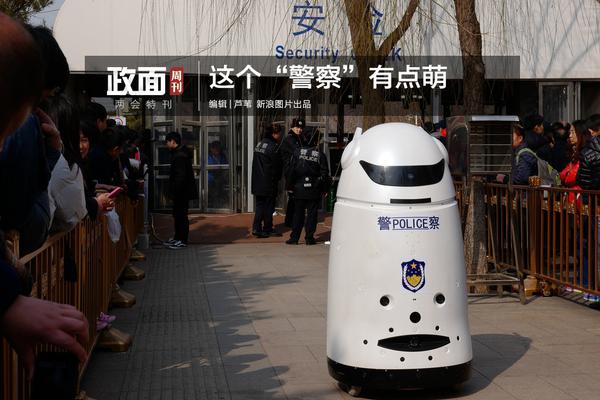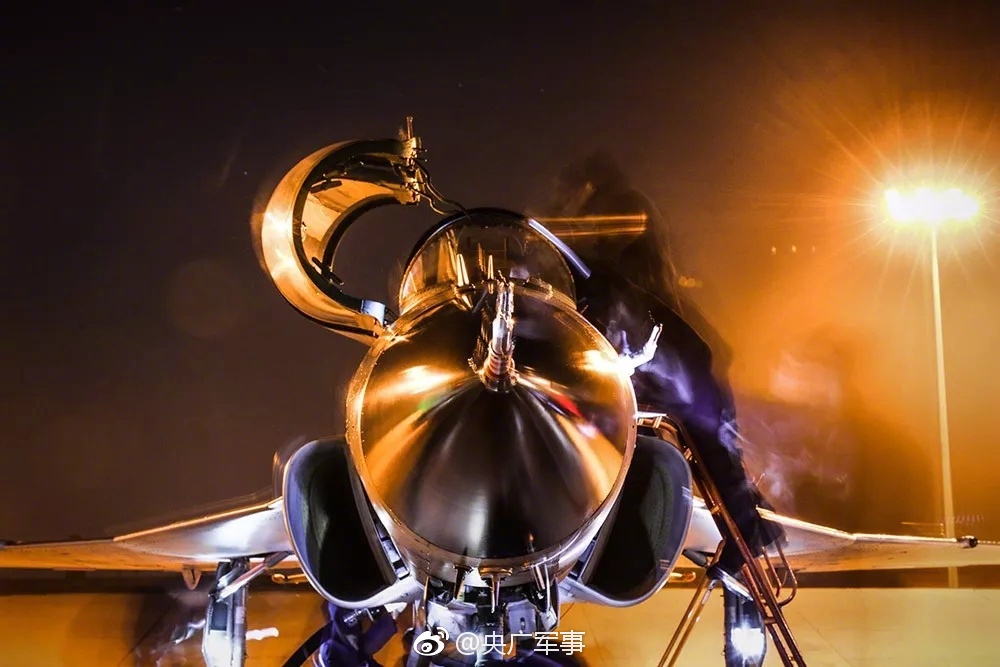
1. The five functions of the operating system are processor management, memory management, device management, file management and job management. Processor management The most basic function of processor management is to process interrupt events. After configuring the operating system, various events can be processed.
2. The main function of the computer operating system is process management, and its work is mainly process scheduling. In the case of a single user and a single taskNext, the processor is only monopolized by one user's task, and the process management work is very simple.
3. Operating System (abbreviation: OS) is a group of interrelated system software programs that supervise and control computer operation, use and run hardware, software resources and provide public services to organize user interaction.
4. Five major management functions of the operating system: (1) Job management: including tasks, interface management, human-computer interaction, graphical interface, voice control and virtual reality, etc. ( 2) File management: also known as information management. ( 3) Storage management: The essence is the management of storage "space", which mainly refers to the management of the main memory.
Any information system has five basic functions, namely: information collection and recording (input); information storage; information processing; information transmission; information output .
According to the functional introduction of the information system, the information system has five basic functions: input, storage, processing, output and control. Different functions have different functions, such as input function: the input function of the information system is determined by the purpose to be achieved by the system, the ability of the system and the permission of the information environment.
Five basic functions of the information system: input, storage, processing, output and control. Input function: The input function of the information system is determined by the purpose to be achieved by the system, the ability of the system and the permission of the information environment.Storage function: Storage function refers to the ability of the system to store various information and data. Mainly including: statistical functions.
The operating system has five functions: processor management: mainly controls and manages the work of the CPU. Storage management: mainly allocate and manage memory. Device management: mainly manage basic input and output devices. File management: responsible for the organization, storage, operation and protection of computer files.
The functions of the computer operating system include: processor management, memory management, device management, file management, job management and other functional modules. Processor management. The most basic function of processor management is to handle interrupt events. The processor can only detect interrupt events and generate interrupts and cannot process them.
The main function of the computer operating system is process management, and its main work is process scheduling. In the case of a single user and a single task, the processor is only monopolized by one user's task, and the work of process management is very simple.
The main functions of the operating system are process and processor management, job management, storage management, device management and file management, as follows: process and processor management. Because the execution of the program must rely on the processor, only one program flow can be processed and executed at any time. Homework management.
I) Processor management The most basic function of processor management is to handle interrupt events. The processor can only detect interrupt events and generate interrupts, and cannot handle these interrupt events. After configuring the operating system, all types of events can be handled.Another function of processor management is processor scheduling.
Five management functions of the operating system: job management: including tasks, interface management, human-computer interaction, graphical interface, voice control and virtual reality, etc. File management: also known as information management. Storage management: The essence is the management of storage "space", which mainly refers to the management of the main memory.

The storage management function of the operating system is to manage memory resources. It mainly realizes memory allocation and recovery, storage protection and memory expansion. The device management of the device management operating system is responsible for allocating and recycling external devices, and controlling external devices to operate according to the requirements of user programs.
The functions of the computer operating system include: processor management, memory management, device management, file management, job management and other functional modules. Processor management. The most basic function of processor management is to handle interrupt events. The processor can only detect interrupt events and generate interrupts and cannot process them.
The five functions of the operating system are processor management, memory management, device management, file management and job management.Processor management The most basic function of processor management is to process interrupt events. After configuring the operating system, various events can be processed.
Casino free 100 no deposit-APP, download it now, new users will receive a novice gift pack.
1. The five functions of the operating system are processor management, memory management, device management, file management and job management. Processor management The most basic function of processor management is to process interrupt events. After configuring the operating system, various events can be processed.
2. The main function of the computer operating system is process management, and its work is mainly process scheduling. In the case of a single user and a single taskNext, the processor is only monopolized by one user's task, and the process management work is very simple.
3. Operating System (abbreviation: OS) is a group of interrelated system software programs that supervise and control computer operation, use and run hardware, software resources and provide public services to organize user interaction.
4. Five major management functions of the operating system: (1) Job management: including tasks, interface management, human-computer interaction, graphical interface, voice control and virtual reality, etc. ( 2) File management: also known as information management. ( 3) Storage management: The essence is the management of storage "space", which mainly refers to the management of the main memory.
Any information system has five basic functions, namely: information collection and recording (input); information storage; information processing; information transmission; information output .
According to the functional introduction of the information system, the information system has five basic functions: input, storage, processing, output and control. Different functions have different functions, such as input function: the input function of the information system is determined by the purpose to be achieved by the system, the ability of the system and the permission of the information environment.
Five basic functions of the information system: input, storage, processing, output and control. Input function: The input function of the information system is determined by the purpose to be achieved by the system, the ability of the system and the permission of the information environment.Storage function: Storage function refers to the ability of the system to store various information and data. Mainly including: statistical functions.
The operating system has five functions: processor management: mainly controls and manages the work of the CPU. Storage management: mainly allocate and manage memory. Device management: mainly manage basic input and output devices. File management: responsible for the organization, storage, operation and protection of computer files.
The functions of the computer operating system include: processor management, memory management, device management, file management, job management and other functional modules. Processor management. The most basic function of processor management is to handle interrupt events. The processor can only detect interrupt events and generate interrupts and cannot process them.
The main function of the computer operating system is process management, and its main work is process scheduling. In the case of a single user and a single task, the processor is only monopolized by one user's task, and the work of process management is very simple.
The main functions of the operating system are process and processor management, job management, storage management, device management and file management, as follows: process and processor management. Because the execution of the program must rely on the processor, only one program flow can be processed and executed at any time. Homework management.
I) Processor management The most basic function of processor management is to handle interrupt events. The processor can only detect interrupt events and generate interrupts, and cannot handle these interrupt events. After configuring the operating system, all types of events can be handled.Another function of processor management is processor scheduling.
Five management functions of the operating system: job management: including tasks, interface management, human-computer interaction, graphical interface, voice control and virtual reality, etc. File management: also known as information management. Storage management: The essence is the management of storage "space", which mainly refers to the management of the main memory.

The storage management function of the operating system is to manage memory resources. It mainly realizes memory allocation and recovery, storage protection and memory expansion. The device management of the device management operating system is responsible for allocating and recycling external devices, and controlling external devices to operate according to the requirements of user programs.
The functions of the computer operating system include: processor management, memory management, device management, file management, job management and other functional modules. Processor management. The most basic function of processor management is to handle interrupt events. The processor can only detect interrupt events and generate interrupts and cannot process them.
The five functions of the operating system are processor management, memory management, device management, file management and job management.Processor management The most basic function of processor management is to process interrupt events. After configuring the operating system, various events can be processed.
100 free bonus casino no deposit GCash
author: 2025-02-23 17:51Hearthstone arena deck Builder
author: 2025-02-23 19:34100 free bonus casino no deposit GCash
author: 2025-02-23 18:45Free sports events uefa champions league app android
author: 2025-02-23 17:38 Free sports events uefa champions league app android
Free sports events uefa champions league app android
526.57MB
Check DigiPlus stock
DigiPlus stock
816.57MB
Check Casino free 100 no deposit
Casino free 100 no deposit
621.85MB
Check Bingo Plus stock
Bingo Plus stock
275.55MB
Check Arena Plus login
Arena Plus login
615.42MB
Check DigiPlus
DigiPlus
545.19MB
Check European Cup live
European Cup live
983.54MB
Check Casino Plus
Casino Plus
472.35MB
Check App to watch Champions League live free
App to watch Champions League live free
587.24MB
Check Hearthstone arena
Hearthstone arena
813.36MB
Check Arena plus APK
Arena plus APK
235.37MB
Check UEFA Champions League live
UEFA Champions League live
827.82MB
Check bingo plus update today
bingo plus update today
577.53MB
Check App to watch Champions League live free
App to watch Champions League live free
153.34MB
Check PAGCOR online casino free 100
PAGCOR online casino free 100
649.93MB
Check DigiPlus stock
DigiPlus stock
593.41MB
Check PAGCOR online casino free 100
PAGCOR online casino free 100
229.27MB
Check Casino Plus
Casino Plus
229.49MB
Check Hearthstone arena
Hearthstone arena
871.47MB
Check UEFA Champions League
UEFA Champions League
977.53MB
Check casino plus free 100
casino plus free 100
143.66MB
Check Walletinvestor digi plus
Walletinvestor digi plus
874.84MB
Check DigiPlus Philippine
DigiPlus Philippine
297.54MB
Check Hearthstone Arena win rate
Hearthstone Arena win rate
818.56MB
Check TNT Sports
TNT Sports
629.81MB
Check Casino Plus app
Casino Plus app
723.46MB
Check DigiPlus fair value
DigiPlus fair value
977.99MB
Check PAGCOR online casino free 100
PAGCOR online casino free 100
681.21MB
Check Hearthstone arena
Hearthstone arena
898.98MB
Check Casino Plus GCash login
Casino Plus GCash login
116.23MB
Check Casino redeem
Casino redeem
212.97MB
Check Arena plus APK
Arena plus APK
758.65MB
Check Free sports events uefa champions league app android
Free sports events uefa champions league app android
537.85MB
Check DigiPlus stock
DigiPlus stock
575.64MB
Check LR stock price Philippines
LR stock price Philippines
657.44MB
Check UEFA Champions League
UEFA Champions League
977.37MB
Check
Scan to install
Casino free 100 no deposit to discover more
Netizen comments More
2595 UEFA Champions League
2025-02-23 18:57 recommend
1237 UEFA European championship
2025-02-23 18:47 recommend
1828 UEFA Champions League standings
2025-02-23 18:39 recommend
1478 UEFA live free
2025-02-23 18:15 recommend
1708 Hearthstone Arena win rate
2025-02-23 17:48 recommend